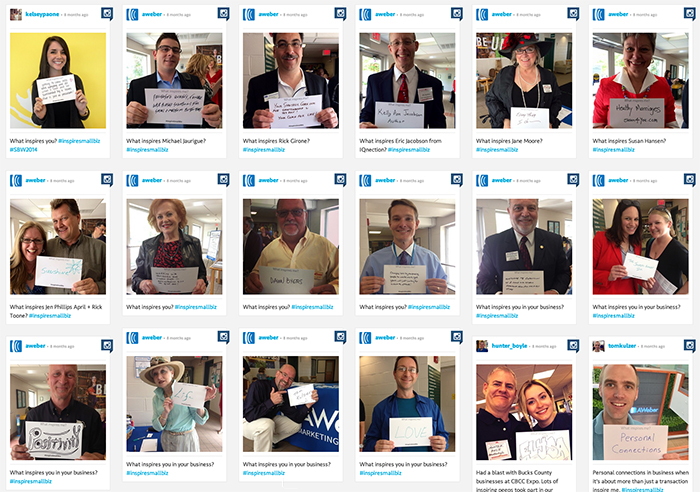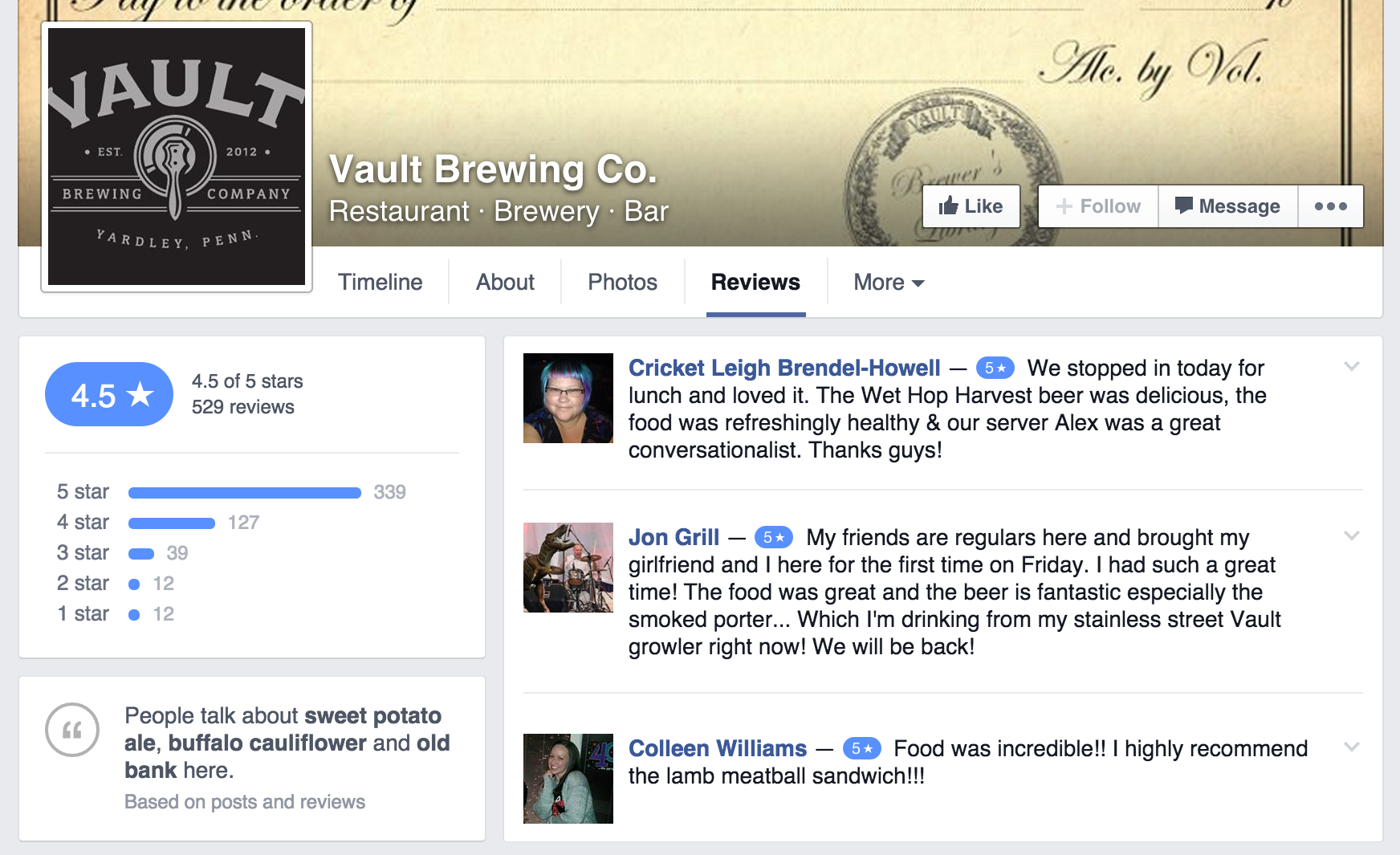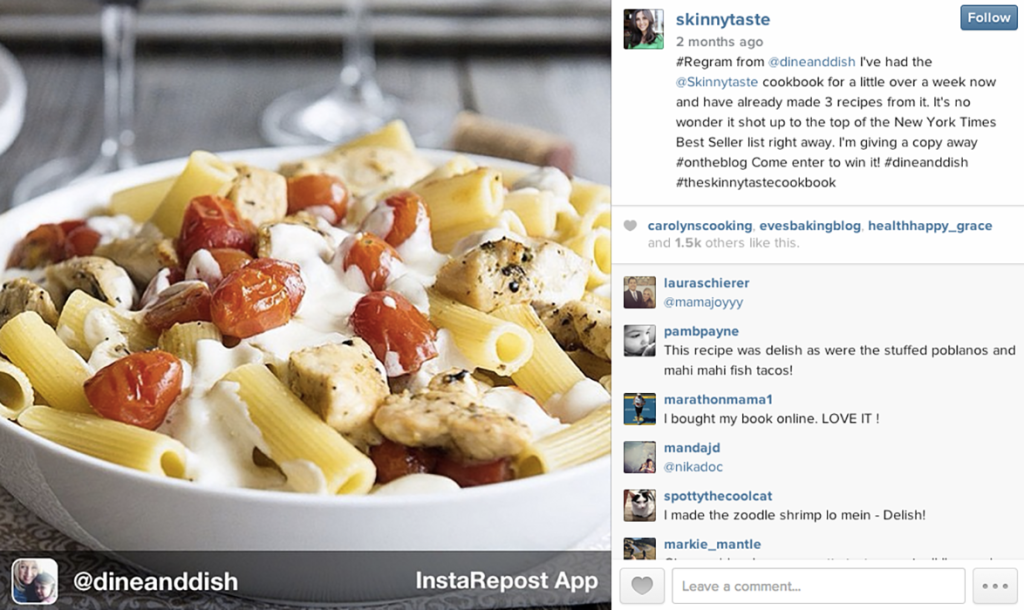User-generated content (or UGC, for short) has become a buzzword in the digital marketing world. And for good reason – avid social media users are consuming over five hours of user-generated content per day. So it’s no surprise that fan-powered campaigns have proven to be 20 percent more effective on purchasing decisions than their traditional ad counterparts.
UGC can be a great addition to your marketing strategy, all while boosting engagement and awareness for your brand. Let’s take a look at some of the ways that small businesses (and even AWeber) are crowdsourcing content so you can put together a successful user-powered campaign of your own!
Why Is User-Generated Content So Effective For Small Businesses?
UGC is a low-investment, high-impact way to generate social conversation between a brand and its fans. It also has advantages over traditional marketing avenues: reports show that Millennials – the demographic that holds the most purchasing power – are 50 percent more likely to trust reviews from their peers than they are from any other form of media. “Millennials are a generation that wants to co-create the product, the brand, with you,” says Alex Castellarnau of the file transfer service Dropbox. “Companies that understand this and figure out ways to engage in this co-creation relationship with millennials will have an edge.”
But even if your company doesn’t cater to Millennials, don’t dismiss the idea of UGC just yet. As technology becomes more prevalent amongst older generations, the same buying behaviors and principles will be considered standard.
What Are Some Types Of User-Generated Content?
UGC can be as simple as a blog comment or as technical as a video spot. The type of content you collect is really up to you – just make sure it aligns with your brand messaging.
Some other types of UGC to consider include:
- Social media posts (i.e. Twitter, Instagram)
- User-submitted photos and videos
- Guest blog posts
- Testimonials
- Public and brand forums
How Can Your Small Business Collect User-Generated Content?
1. Hosting a campaign:
UGC is a simple and cost-effective way to get exposure for your brand, since entrants are likely to share their entries within their social circles. An easy way to collect content is to run a campaign via social, like we did for National Small Business Week. We celebrated by collecting and sharing the inspirations of small business owners from around the world:
Pro Tip: Apps like Heyo, TagBoard and Keyhole make aggregating fan content a breeze – all while engaging fans, collecting new subscribers and converting sales.
2. Testimonials and Reviews:
After a customer makes a purchase on your site, send them a follow up email asking them to rate their purchase. Or invite fan feedback on your social pages, like Vault Brewery does on their Facebook page:
Pro Tip: If you’re feeling creative, ask fans to include photos of their purchases (this works especially well for brands with physical products). Consumers are more likely to trust sources that receive positive feedback from peers.
3. Reposting fan photos:
This is one of the easiest ways to work UGC into your social media strategy and a great way add some authenticity to the marketing mix. Take a look at how SkinnyTaste reposts fan content via Instagram:
Pro Tip: If you choose to go this route, consider creating a unique brand hashtag and encourage customers to tag and share content (we use #AWeberLife).
How Can Small Businesses Monitor User-Generated Content?
Aggregating fan content through your unique brand hashtag will allow you to track mentions around the social sphere. Bring content from multiple sources together in one place with a social media management platform.
Sites like Sprout Social, HootSuite and Edgar are great for monitoring the social pull of your brand. And this is important, since you want your brand’s perception to stay consistent throughout your messaging. Tools like these allow you to moderate fan submissions, so you’ll be able to approve and curate content before it hits your sharing stream.
Looking Ahead
Don’t expect to see UGC going away anytime soon. With social media at the forefront of modern marketing channels, users are consuming and creating authentic content daily. And UGC is easy to implement into your current strategy – as you’ve seen, many small businesses are already embracing for its quick and cost-effective results. Consider adding UGC to your to-do list today!
Do you have any great examples of brands leveraging user-generated content? Let us know in the comments!



